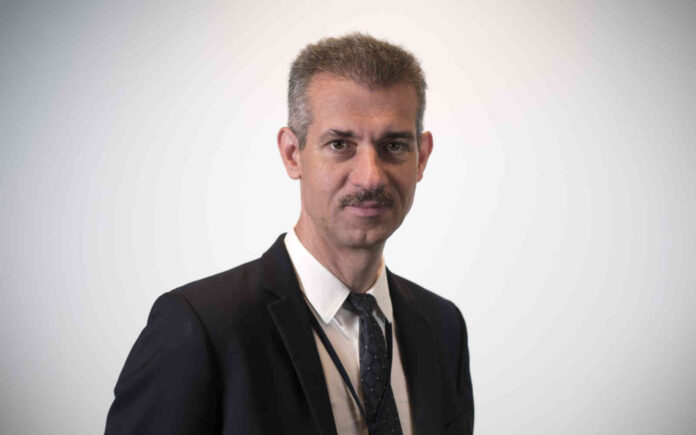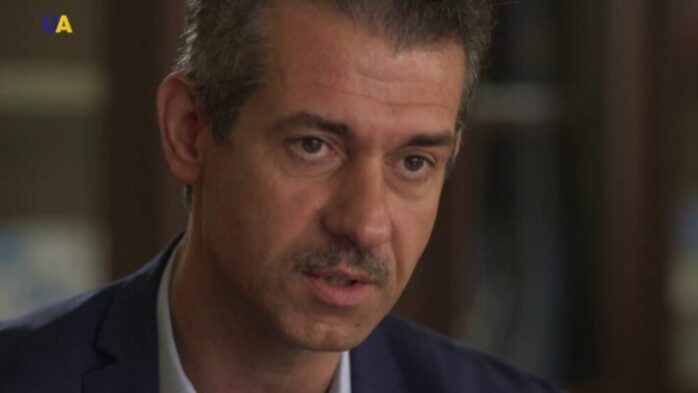
All those interested in development have been watching with much interest the great debate about how developing countries can accelerate their pace on the largely unpaved road leading to the achievement of the SDGs. There are scores of individuals and entities pontificating on the subject matter but few are doing something practical and at scale. It was hard not to notice the strides made by UNOPS and S3I – what did we miss?
You reminded me of one of my favourite quote-producers Yogi Berra who once said: “You can observe a lot by just watching”. What we observed is that there was no shortage of committed and dedicated individuals and entities who over the years came up with excellent policy advice and guidance aimed at achieving the sustainable development goals by 2030. However, the public sector alone is woefully ill equipped to close the gap between the type of financing that is required (you can pick the estimate you like best but all of them go into tens of trillions of US dollars) and the current level of the official development assistance by all the donor countries combined which is just above US$ 150 billion per annum.
There is virtually no alternative to raising massive amounts of capital from the private sector. Conceptually, this is very clear but little has been done to move from high-level declarations and pronouncements to practical implementation. We decided to focus on what we know best which is getting our hands and other limbs sufficiently dirty to show results on the ground. Our expertise and mandate from the UN General Assembly are in infrastructure, procurement and project management.
UNOPS is the only UN agency that is fully self-financed and our working methods are very much akin to those of the private sector except we remain not-for-profit. Given our reputation for speed, flexibility, agility and trusting relationships with both grassroots and Governments around the world, we decided at UNOPS to test our mettle at structuring large-scale infrastructure deals.
A couple of months ago you got a new appointment by the UN Secretary General. The title of his Assistant and also Chief Executive of S3I (Sustainable Infrastructure Impact Investments) is quite colourful. What does that entail?
I suppose it represents a logical extension of what I’ve just mentioned. UN senior-most leadership is genuinely committed to advancing innovative ways of financing for development, and our S3I initiative allows for testing some of the conceptual work and channelling it into the practical domain. We chose to focus on just three infra sectors: affordable housing, renewable energy and health.
These are areas that are exceptionally important for any developing country, plus we understand them quite well and have the requisite skills to structure commercially viable deals and then scale them up. To give you some idea, in the domain of affordable housing, we have now signed deals with the Governments of five countries on three continents to build a minimum of 860,000 housing units. The gross development value of these projects exceeds US$40 billion and it’s just the beginning.
UNOPS is not a passive participant: in addition to helping structure the deals, we provide implementation support and share the risks by using some of our own hard-earned cash to take equity or debt positions in the deals. On top of showing some serious “skin in the game”, one of our most important contributions is our ability to promote UN values, instil transparency culture and bring sustainability and social impact to the forefront of the dialogue between participating Governments and institutional investors.
Your career in the UN started unusually early and you moved up the career ladder super-fast, how was that possible?
I guess sheer luck – you can’t go far without it. I was hired by the UN at 22 years of age in my home country of Ukraine, very soon after it became independent following the break-up of the Soviet Union. I was one of the first two local hires after UN opened its first office in Ukraine, and perforce was given a lot of responsibility. I probably did reasonably well at the time and my international career took off after I left Ukraine some five years later in 1997.
You’re recruiting for a number of positions in Helsinki, Finland and your full-page advertisement in Economist says: “Gamechangers wanted, bureaucrats need not apply”. Nice slogan but how is that possible in the UN or more broadly public sector environment where strict adherence to rigid rules is what’s expected of public servants?
I would not deny that this represents a true challenge. Indeed, there is a lot of pressure on public sector officials to avoid what can be seen as individual decision-making – it’s much safer to get a steering committee or task force to decide (or postpone deciding) collectively and thereby dilute individual accountability. The incentives are at times perverse and heavily discourage calculated risk taking and experimenting.
While we’re far from perfect on that count at UNOPS, I believe we found ways to try and test creative approaches to tackling daunting tasks. The entrepreneurial spirit at UNOPS and the culture of respecting and promoting innovation are very real. It should come as little surprise that UNOPS is the youngest agency in the UN system, by quite some margin, and young people have great opportunities to contribute and make a stellar career.
I guess one potential career risk is that we invest a lot of time and effort in getting exciting things done, often in trying circumstances, while we are not nearly as good at producing tons of paperwork to justify every little bit of action we had to take…oh and the real horror – we may make a few mistakes along the way and colleagues are not immediately ostracized for it. This is very cool environment for some people but definitely not for all.

OK, why selecting not-so-visible Finland as a base for S3I Office ? Is that their post-Nokia attempt to re-connect people?
I think stars just aligned the right way for all concerned. We did very extensive search for the best place to host S3I hub and many wonderful countries and cities were in the running. I can assure you that our final decision to go to Helsinki was not based on financials benefits. In fact UNOPS is in excellent financial health, following 14 consecutive years of operational profits.
We were persuaded by many intangibles of crucial importance, such as very high degree of political stability, enviable start-up and innovation culture, top rankings in all transparency and ease of doing business surveys, etc. I guess Finland having been the happiest country in the world in 2019 and the chance to meet Santa Claus in Lapland did not hurt either.
If roles got swapped and you had to be interviewed for a job, how would you describe yourself?
In one of my previous incarnations, I was running a small UN outfit that was selecting young professionals for the UN. We would travel from country to country and interview scores of aspiring young people. I probably interviewed thousands of candidates over the years and that experience helps you distinguish real from fake. While it’s been ages since I was interviewed for any job, I could surely use some of those tricks of the trade to confuse an interviewer and present myself as someone that I’m not.
I always tried to avoid interviews at all costs, and the few exceptions I made were unavoidable situations. The reality is: I’m a weird guy that still truly enjoys what he has been doing after almost 28 years with international organizations, and is at his best when told that this or that simply cannot be done – occasionally achieving the impossible or at least improbable is very appealing to me.
We noticed you have profiles on different social media platforms but you seem to never use them. What’s the point of having them?
Tough question. By nature, I’m someone who likes to stay away from the limelight. The more invisible I am, the more comfortable it is for me. I’ve seen a few things over my career that spans three decades and probably have a few stories to share but I always kept them to myself. May be I should write a book when I retire…or maybe not. I use social media to keep myself informed of what colleagues are doing and have no urge to share what I’ve been up to. I find it slightly annoying when people post detailed stories as to what sandwich they ate for lunch or which song they were listening to when going to work. That said, I realize that in my new job I need to maintain some online presence, otherwise it may negatively affect S3I as visibility and track record are very essential for building relationships in the world of investments.

On a lighter note: your son Eric Vanshelboim is apparently doing well in professional tennis, what does that mean to you?
I’d like him as well as his older and younger brother to become the best they can be in their chosen field. All I can realistically do is offer a bit of generic advice on things like avoiding certain pitfalls and retaining self-confidence. Eric is only 18 so it’s impossible to tell how high he can climb in the rankings in the years to come. Tennis is probably the second most competitive truly global sport after football (soccer) and very few people can make a living out of it, but is always a good idea to pursue one’s dream. Eric’s last pro tournament got cancelled in India just hours before he was scheduled to play his quarterfinal in early March. Due to the COVID-19 outbreak, all tennis tournaments got removed from the calendar from that point until at least mid-July. Nobody really knows what will happen when things go back to the new normal.
Staying on the subject of COVID-19, what are the immediate implications for the S3I activities and for yourself?
The impact has been quite profound. S3I is all about infrastructure meaning construction of assets. Due to the lockdown orders in all the countries where S3I currently operates, we were unable to build anything over the last two months. Instead we focussed on planning, sourcing new deals, recruiting new talent, and having impactful conversations with a variety of institutional investors. For me personally, it is quite odd that I can’t jump on the plane and go to the project site or similar. Prior to this, since 1992 my longest stretch of staying put in the same location was three weeks. Now, like most other people, I’m getting more used to various videoconferencing solutions, with occasional unintended consequences.
What is the next big frontier for S3I?
In the words of the iconic US inventor Charles Kettering: “Where there is an open mind, there will always be a frontier.” I misplaced my crystal ball long time ago so can only offer some semi-educated guesses. Infrastructure is always a long-haul game but even though S3I is technically in the concept-proofing phase until the end of 2024, I would like for this ground-breaking initiative to graduate much earlier, and become the shining example of how the lives of millions of people around the globe can be positively affected when enough ostensibly maddeningly insane people join forces and persist in toiling away despite opposition from an army of professional naysayers.











